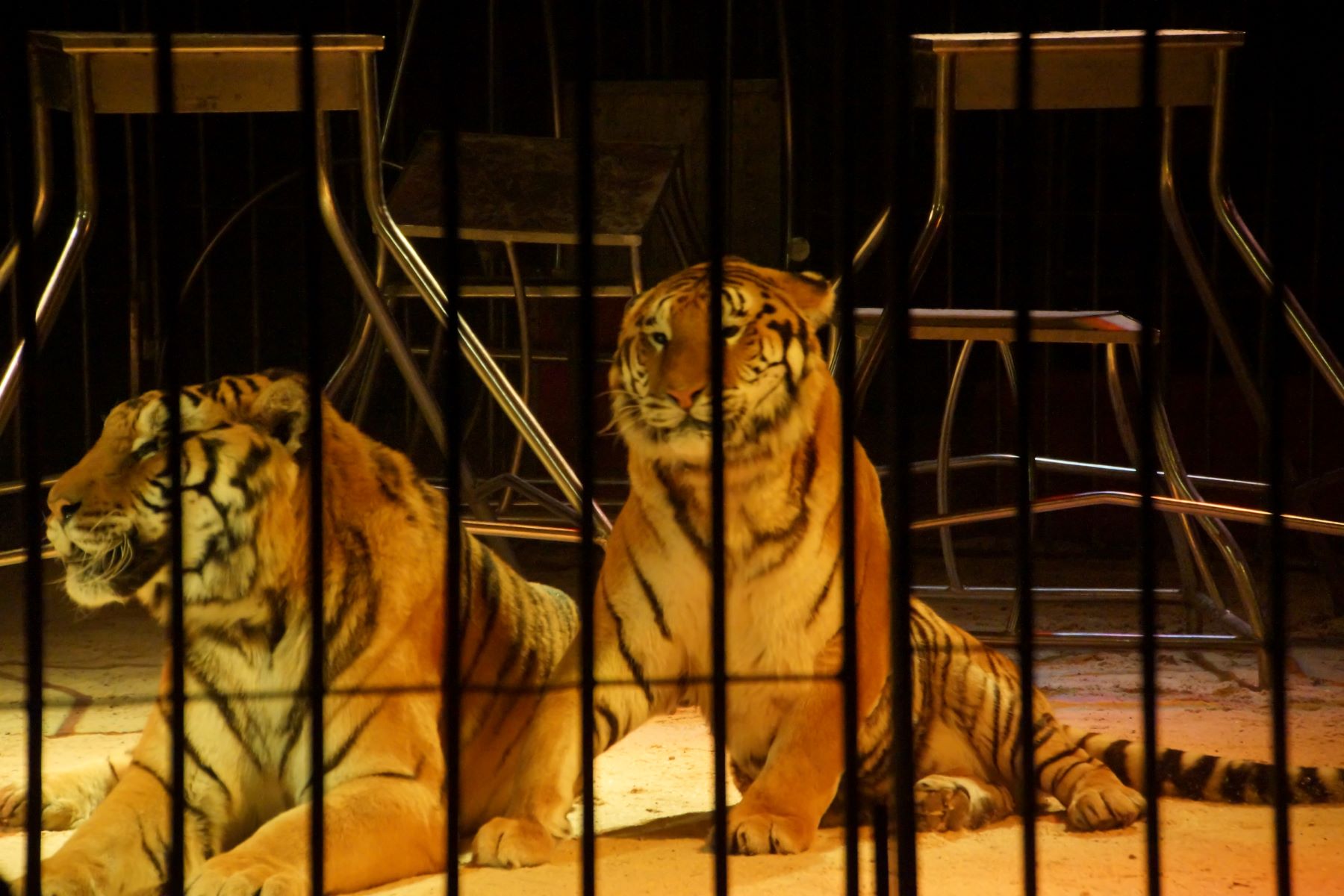
A major scientific study by academics at the University of Winchester has vindicated naturalist and TV presenter Chris Packham’s claims that life in a travelling circus is harmful to tigers.
Chris claimed in the High Court in 2023 that circus environments can be harmful to the welfare of tigers.
He had previously sought to raise funds for the care of several tigers re-homed from a Spanish circus with the Wildheart Trust – a wildlife sanctuary on the Isle of Wight.
However, Country Squire Magazine website accused Packham of defrauding people while attempting to raise funds for the tigers despite knowing they had been well looked after.
Packham sued a writer and editor for libel, with the High Court awarding Packham £90,000 in damages and an initial £400,000 towards costs.
 Chris Packham was involved in court battle after clashing with magazine over tiger welfare
Chris Packham was involved in court battle after clashing with magazine over tiger welfare
Now a peer-reviewed study by visiting lecturers at the University of Winchester, Emily Davies and Professor Andrew Knight, published in Animals backs up Chris’s position.
It reviewed 42 published scientific studies, including virtually all studies of welfare implications for captive tigers within circuses and zoos.
The researchers analysed the implications for each of the recognised domains of animal welfare: nutrition, physical environment, health, and mental state. In each case the travelling nature of circuses clearly threatened the welfare of tigers.
The effects of behavioural domain was more mixed, with some evidence suggesting training can offer some welfare benefits by providing mental stimulation. However, training techniques, as well as noisy audiences, can also be a source of fear and stress.
Chris Packham said: “Like most people I have always known it was wrong to keep tigers confined in circuses and I am delighted to have been scientifically vindicated by this excellent study.
“There is absolutely no excuse for subjecting wild animals to cruelty, in circuses or elsewhere. The scientific evidence is clear: circus environments are harmful to the welfare of animals such as tigers and there should be a very rapid transition to remove all big cats from these ill-suited and antiquated environments.”
Lead researcher and animal welfare scientist, Emily Davies, said: “Overall, the scientific evidence clearly demonstrates that tigers are poorly suited to circus life. Travelling circuses cannot adequately provide for their species-specific psychological, physiological, and behavioural needs.”
Co-researcher and Veterinary Professor of animal welfare, Andrew Knight, said: “I was also disturbed to see multiple serious injuries within the case reports of the tigers I studied, caused by the circus environment or training accidents.
"Lack of appropriate veterinary care meant these tigers continued to suffer from serious, ongoing pain and discomfort many years afterwards. In the modern, civilised world, animals should not be harmed for entertainment in this way. Over 50 nations have already banned or restricted the use of wild animals within circuses. The remainder should do so, without further delay.”
Although wild animals such as tigers continue to be used in circuses around the world, they’ve been banned on animal welfare grounds in England, Scotland and Wales since 2020.
Back to media centre